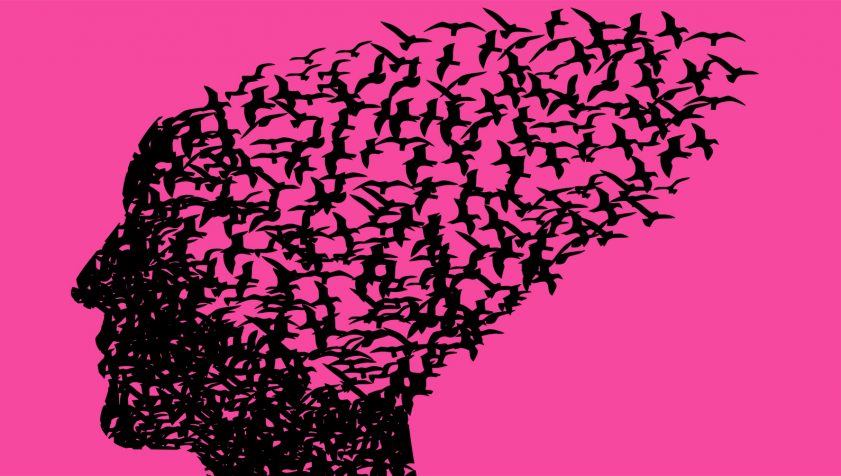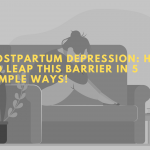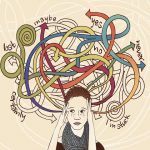One of the most common psychological illnesses in the elderly is dementia. This illness targeted about 35.6 million people in 2010. In 2015, there were an estimated 46.8 million people living with dementia. The number of people who have dementia is supposed to double every 20 years. In 2013, dementia was accounted to be the reason for about 1.7 million deaths. If you keep that figure in mind, you’ll see a large rise in people dying from dementia in 1990 – 0.8 million to – 2013. It is also seen that two-thirds of people suffering from dementia are living in middle/low-income countries. The annual contribution of continents in cases of dementia each year are: –
- EUROPE 25%
- AMERICAS 18%
- AFRICA 8%
- ASIA 17%
It is not only the people that suffer from dementia that are impacted; caretakers are also negatively impacted. Among the people aged over 60 years, dementia is ranked the 9th most burdensome condition according to the database of the 2010 Global Burden of Disease. The global economic cost of dementia was estimated to be the US $ 818 billion in 2015.

THE TERM – DEMENTIA
Dementia that develops in the elderly was used t be called senile dementia or senility. It was seen as a regular aspect of growing old and wasn’t considered a condition or illness. In the early 1900s, dementia and schizophrenia were used interchangeably, i.e., in the cases when dementia’s symptoms had developed in younger people. It was in the 60s that dementia was separated from Schizophrenia and was started to be recognized as an umbrella term for all the psychological illnesses that have a permanent and irreversible effect on the brain, like Alzheimer’s.
Dementia got its name from Latin. The word de – means ‘without’ and Latin word mens – means ‘mind’. The literal translation from Latin can mean mindless or madness however, dementia in English means a condition where people are left incapacitated by the degradation of the brain.
DEFINITION
The most comprehensive definition of dementia is laid by NIMH – “Dementia is the loss of cognitive functioning—the ability to think, remember, problem-solve or reason—to such an extent that it interferes with a person’s daily life and activities. Dementia ranges in severity from the mildest stage, when it is just beginning to affect a person’s functioning, to the most severe stage, when the person must depend completely on others for basic activities of daily living. Functions affected include memory, language skills, visual perception, problem-solving, self-management, and the ability to focus and pay attention. Some people with dementia cannot control their emotions, and their personalities may change. Signs and symptoms of dementia result when once-healthy neurons (nerve cells) in the brain stop working, lose connections with other brain cells, and die. While everyone loses some neurons as they age, people with dementia experience far greater loss. Unlike dementia, age-related memory loss isn’t disabling. While dementia is more common with advanced age (as many as half of all people age 85 or older may have some form of dementia), it is not a normal part of aging”

SIGNS AND SYMPTOMS
The signs and symptoms that are observed in people vary a lot, there is not a fixed matrix for the behaviors that can be undoubtedly considered as symptoms of dementia. The most commonly observed symptoms of dementia include deteriorating memory, visual/spatial confusion, diminished use of language or even inability to form statements. The serious issue with dementia is that by the time these listed symptoms become apparent, the brain had been through a lot of erosion. There are also symptoms that occur due to a coalition of neurological and psychiatric conditions as listed below
- LOSS OF BALANCE – the brain conditions like Vascular Dementia take form due to impaired blood supply to the cerebellum (the part of the brain that coordinates the sense of direction and acceleration with respect to visual sensation from eyes), this result in the development of loss of balance; people can feel vertigo or sensation of the floor falling from under their feet. This poses a serious condition for the people suffering from dementia as well as their caregivers. They always have the threat of falling and gravely injuring themselves.
- TREMORS – the patients of dementia also show symptoms of tremors triggered by the impaired cerebellum. They occur as involuntary twitching of hands and fingers on the end of tasks like signing a page or tapping a screen. These tremors get worse with time and hamper almost all of the daily activities of these patients.
- SPEECH AND LANGUAGE – the patients also suffer a contracting vocabulary as the brain deteriorates, the speech centers in the Cerebrum, mainly the temporal lobes, become inefficient at being able to process language and makes the communication with the patient a difficult task. The patients forget the language and experience difficulties in expressing themselves.
- DIFFICULTY IN EATING/ SWALLOWING – with the eroding mind, many of the problems like not being able to swallow or chew arise, also known as dysphagia. Since the process of swallowing is an involuntary process (a process automatically regulated by the brain and doesn’t require human intervention) there are conditions that sometimes these centers breakdown. There is a risk of them choking on their food.
- DECLINING MEMORY – with the onset of dementia, we see the patients forget the memories or mix up the memories and confusing the facts. The memory is stored in the brain in a large portion of the brain’s Cerebrum. When this gets eroded, the memories fade away leaving the patients in an emotionless void.
- DEPRESSION & ANXIETY – though there is no direct explanation for these two to manifest in case of Dementia. But there are speculations that due to the breaking down of the nervous network in the brain, many co-morbidities can be triggered resulting in a complex situation. Probably due to the inability of doing regular work by themselves or dependency on others can also trigger depression in patients of Dementia.
- IRRITABILITY – this can be caused by the elated reaction to insignificant events. They become prone to anger, severely infuriated or frustrated at themselves or the others. This can affect their social life negatively and can result in guilt, depression or anxiety. The stress hormones take over the person and an overall negative attitude to life develops.
- APATHY – is the general lack of feeling or emotions towards people, life. A person with apathy does not see the purpose or meaning of life or joy. Apathy is the prolonged state of indifference towards life and an emotionless state. The patients seem to be distanced from others and a general lack of motivation is observed.
- IMPULSIVITY – means a tendency to act out their thoughts without any restraint or forethought or consideration of consequences. Mostly the prefrontal cortex is supposed to have an inhibitory control on redundant thoughts in some cases when the prefrontal cortex does not function properly, the patients display impulsive behavior.
With this, we’ve arrived at the conclusion the first post on the series of posts on the subject of Dementia and its effects on people. In the next post, we will be talking about the treatments of Dementia in detail. Thank you for reading, we’ll see you next time.








